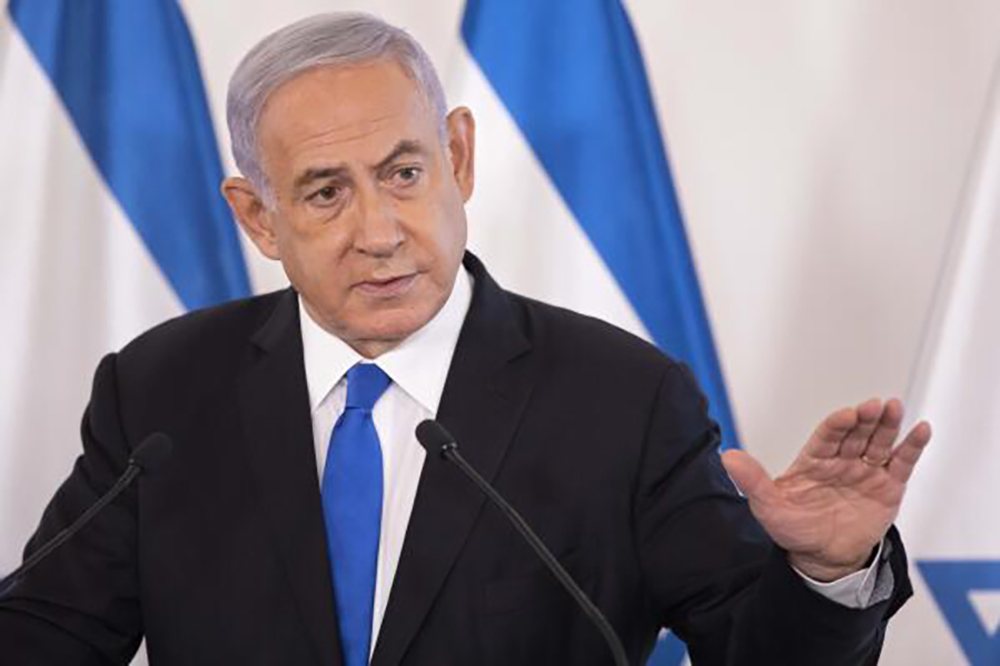|
Getting your Trinity Audio player ready...
|
The battle for Rafah is a pivotal moment in Israel ‘s war of self-defense against Hamas, a designated terrorist organization by many countries including the United States and the European Union. This conflict has escalated due to prolonged and unyielding negotiations for a ceasefire, during which Hamas has continued its detainment of hostages, seemingly with no intention of their release. These actions occur under the shadow of international politics, with significant implications for both regional stability and global diplomatic relations.
The situation in Rafah is dire and of paramount strategic importance: it is not only a stronghold for Hamas leaders and their military operations but also a critical point for the smuggling of military supplies and the control of incoming aid. This city’s security and stability are thus crucial not only for Israel’s security but for regional stability as well. The control over Rafah could dictate the future dynamics of Hamas’s military capabilities and its ability to negotiate.
Prime Minister Benjamin Netanyahu’s remarks display a resolve that Israel will continue its defense operations irrespective of the pressures and decisions from international forums. This declaration comes at a critical juncture when the Israeli government’s sovereignty and the safety of its citizens are directly threatened by Hamas’ activities, particularly following the tragic events of October 7, where 1,200 Israelis were brutally massacred in the now infamous Hamas attack. Netanyahu’s statement, “If Israel is forced to stand alone, Israel will stand alone,” resonates as a stark reminder of Israel’s readiness to act independently while still acknowledging the global support for its cause from numerous international quarters.
The strategy employed by Israel in Rafah involves meticulous evacuation of civilians to safer areas, followed by military operations aimed at dismantling Hamas’ operational capabilities in a systematic manner. This approach of evacuating then engaging is intended to minimize civilian casualties and prevent Hamas from using civilians as human shields, a practice that has been a significant concern in urban combat settings.
In the face of ongoing hostage situations and Hamas’s controlled responses to Israeli pressures, the efficacy of Israel’s military strategy has been starkly demonstrated. The recent civilian evacuation ordered by Israel in Rafah prompted a swift counteroffer from Hamas, underlining the impact of decisive military action on accelerating diplomatic negotiations. This was similarly observed in November when intense military pressure led to the release of 105 hostages. Such outcomes underscore the argument that substantial pressure can lead to meaningful concessions from Hamas.

Criticism of these actions by international bodies and countries such as France, which has called the displacement of civilians a crime, highlights the complex humanitarian and ethical dilemmas faced in such military engagements. However, the alternative—combat operations in densely populated urban areas without prior evacuation—poses an even greater risk of civilian casualties, thereby complicating the moral landscape of military strategy.
Furthermore, the stance of the United Nations Relief and Works Agency (UNRWA) which has expressed resistance to these evacuations, brings to light the often politicized nature of international responses, where ideological positions can sometimes overshadow pragmatic considerations of civilian safety.
The decision by President Biden to oppose any Israeli military movement on Rafah has been met with confusion and criticism within Israel. This position aligns indirectly with allowing Hamas, a terrorist organization, to maintain a status quo that has been demonstrably harmful not just to Israel but to the stability of the region as a whole.
As the IDF moves forward with its operations in Rafah, the world watches closely. The outcome of these engagements will likely influence not just the immediate tactical situation but also the long-term approach towards handling groups like Hamas and the broader dynamics of the Israeli-Palestinian conflict. This moment in history illustrates a grim reality that sometimes, in the quest for peace and security, difficult and divisive decisions must be made. Israel’s current actions in Rafah are a testament to its determination to secure its borders and protect its citizens from ongoing terrorist threats, a principle that any sovereign nation holds at its core.
If President Biden truly desires a cease-fire that will lead to a lasting peace and secure conditions for both Israelis and Palestinians, now is the moment to unequivocally back Israel’s right to defend itself against ongoing terrorist threats. Supporting Israel in these critical moments could reinforce a ceasefire scenario where Hamas is compelled to negotiate seriously, with tangible concessions, particularly concerning hostages and the cessation of hostile actions.
Therefore, it is incumbent upon the Biden Administration to support Israel’s actions in Rafah, recognizing that such support is not merely an endorsement of military action but a commitment to facilitating a strategic blockade against a terrorist organization that continues to jeopardize the stability of the region and the safety of countless civilians. Letting Hamas feel the weight of their strategic disadvantages might push them towards a genuine negotiation table, rather than one set on their terms.




